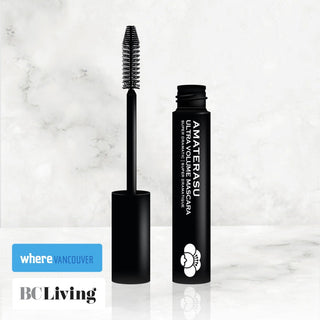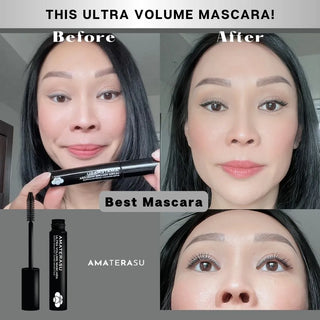
January is our Mental Wellness month at Amaterasu Beauty. As part of the Empowering Women Initiative, I wanted to address this important topic that affects everyone. This is also our way of checking in with you to see how you are doing and feeling. Self care and educating ourselves is so important. We are excited to introduce Dr. Saira Sabzaali Ph.D, a Transpersonal Psychotherapist to help lift us up and give us some information about this.
I recently attended a seminar at the Adler University one Tuesday evening in September last year on Parenting with Purpose - Brain Science to Help Your Kids Thrive. I have always been an advocate of continuous education for parents or parents-to-be, as well as stress management through meditation, and lastly to provide our children with proper non-GMO meals.
Dr. Saira Sabzaali was the presenter and she shared many useful tools and, truthfully, I wish I had recorded the entire seminar. Luckily, I took lots of notes and she also has two must see TED Talks, including one on defeating your inner monsters.
I knew I must introduce Dr. Saira to all of you so I wrote to her to thank her for her compelling presentation and explained why she must do this interview for us. She agreed and here we are:
Sara: As a Transpersonal Psychotherapist, you work with parents or adults, rather than kids. How can changing a person’s parenting style have an affect in our society?
Dr. Saira: Many people come to me for help with their children. Their kids are upset, acting out, anxious or depressed, or engaging in self-harm, and parents want to do whatever it takes to help. What many parents don’t know is that children are often a barometer for the adults in the family. When parents are not doing well, children act it out. I have talked to countless mothers and fathers who tell me their kids are “just fine” during a divorce or other family upheaval, and a few months later, behavioural, social, or self-esteem issues surface in their kids, seemingly out of nowhere.
Parents need to learn how to be honest with their kids about what is happening in the family without burdening them with responsibility that is better shouldered by adults. Parents need to learn how to read the signs their kids give them every day, and interpret their behaviours accurately in order to help. Parents need to learn how to heal the damage that may have been caused in the past, and how to ensure they do not repeat dysfunctional patterns from the families they grew up in.
When more parents get conscious and deliberate about the way they parent, more kids feel seen and supported. When kids feel seen and supported, they are more likely to include others, challenge themselves to grow, and become adults who have deep relationships, meaningful work, and have a sense of purpose in their lives, even when faced with adversity. Wouldn’t it be incredible if the majority of our adult population was inclusive, connected, happy at work, and purpose-filled?
Sara: What is PTSD in kids and how will this affect them in adulthood?
Dr. Saira: PTSD, or Post-Traumatic Stress Disorder, occurs in children when they experience or witness a traumatic event, when there is a real or perceived threat of death to themselves or someone they love. Complex PTSD occurs when there is an on-going threat to safety to the child or someone the child cares about. Children who grow up in abusive homes often suffer from Complex PTSD, even if they themselves were never hit.
When children witness single or repeated incidents that are seriously threatening to them or the people they love, they have to find ways to psychologically cope. When there are constant threats in their environment, the part of the brain that is wired for fight/flight/flee becomes overdeveloped, and the part of the brain that is wired for learning, impulse control, and emotion-regulation gets underdeveloped. What this means is that these children become teenagers (and eventually adults) who engage in more risky or self-harming behaviours, have difficulty with interpersonal relationships, and are not able to keep their cool in stressful situations. They also often suffer with poor self-esteem, and may even turn to addictive substances (nicotine, drugs, alcohol, etc.) to cope with their long-standing inner pain.
Not every child who experiences abuse will have complex PTSD. Some children who are raised in abusive homes but given the right help at the right time by the right people may be able to reverse the damage, as long as the threat is no longer present. If there is a close, caring adult who the child can confide in, who makes sure the child is safe and has outlets to process the trauma, it is unlikely that the child’s brain will develop in the same way as a child who is stuck in a traumatic situation with no one to talk to and no way out.
Sara: We live in a world where there are more ‘modern families’ than ‘nuclear families.’ Why do you think divorce/separation rates are so high now?
Dr. Saira: From my professional experiences of working with people who are considering separation or divorce, I would say there are many reasons the divorce rates are high, including shifting gender expectations, decreased extended family support in child-rearing, increased financial pressure, breakdown of neighbourhood communities, and self-orientation versus family-orientation. The biggest reason I see for family breakdown is that people do not emotionally and psychologically prepare themselves for the un-sexy realities of marriage or long-term intimate partnership before having children. These realities include co-habiting, sharing finances, competing career aspirations, blending extended family obligations, and child-rearing. The last, and most frustrating reason for divorce according to my clients is that they ignored the red-flags that were present before marriage.
According to the research, most couples come to therapy approximately six years after the problems begin. At that point, someone is often ready to walk out the door. There are many pre-marital and newlywed courses that couples can take to prepare themselves for the changes that come after marriage, and I highly recommend on-going “maintenance” sessions for people in long-term relationships. Finally, people often view marriage as the grand finale, believing on some level that everyone is supposed to live happily ever after. What they miss is that relationships force us to look at ourselves deeply, and if you want to stay together for the long haul, you have to be willing to evolve. It’s easier to blame the other person for your unhappiness than get honest about the role you have played in getting things to where they are. It’s sometimes easier to walk away than try to untangle years of pain and resentment. However, with the right support, it can be done, and it will make the relationship even stronger.
Sara: In your presentation, you extensively covered the different parts of the brain. In your experience, how can meditation help regulate one’s emotions?
Dr. Saira: Meditation is a powerful tool in many ways. When you learn that you are not your thoughts and are able to be an observer of your own mind, you are strengthening the impulse control centers in your brain. When you start feeling bad about something but you have learned to observe your own mind, it is easier not to spiral into negative emotions. When you learn to shift the way you breath in meditation, you can then apply that same type of deep, deliberate breathing during stressful situations, and quickly shift your brain from survival mode to problem-solving mode. Meditation trains the brain to be less reactive and more curious, which are essential ingredients in long-term emotion management.
Sara: What is your favourite Amaterasu makeup?
Dr. Saira: I absolutely LOVE the Liquid Eyeliner.
Sara: What does empowering beauty mean to you?
Dr. Saira: Empowering beauty to me is about feeling on the outside like you do on the inside. I have met so many women and men that are beautiful by society’s standards, and yet their inner light does not shine. They are rushed, angry, impatient, overwhelmed, disconnected from others, and generally miserable. When people begin to reclaim who they are and heal the broken pieces of their pasts, they have a chance to really come alive. Time and time again I have sat with clients who come in to therapy defeated by their life situations. Week by week, they get clearer, stronger, and yes, more beautiful. I have seen dozens of “average” looking people become truly empowered, re-connected to their loved ones, and in control of their lives, and suddenly they are undeniably gorgeous, and their friends and family are amazed. Empowering beauty, to me, is that kind of beauty: the kind that shines from the inside out.
I am very grateful to have met Dr. Saira and to be able to share her approach with all of you. You may contact her further here.
------
Amaterasu Beauty offers a lineup of beautiful and functional makeup that are truly smudge-proof and with a high level of integrity. Our products do not contain parabens nor phthalates instead we always opt for cleaner alternatives wherever possible without compromising on our professional quality and performance.
The name Amaterasu is in honour of the Japanese Sun Goddess who illuminates the world with her brilliance and beauty. We believe every woman can be an inspiration and shining light within her community and family, and our products such as our best selling 24 hour Liquid Eyeliner, non-smudge Eye Pencils, sweatproof Brow Liners and flake proof Mascaras are here to help women everywhere look her part.
Contact Amaterasu for your beauty and makeup questions!







